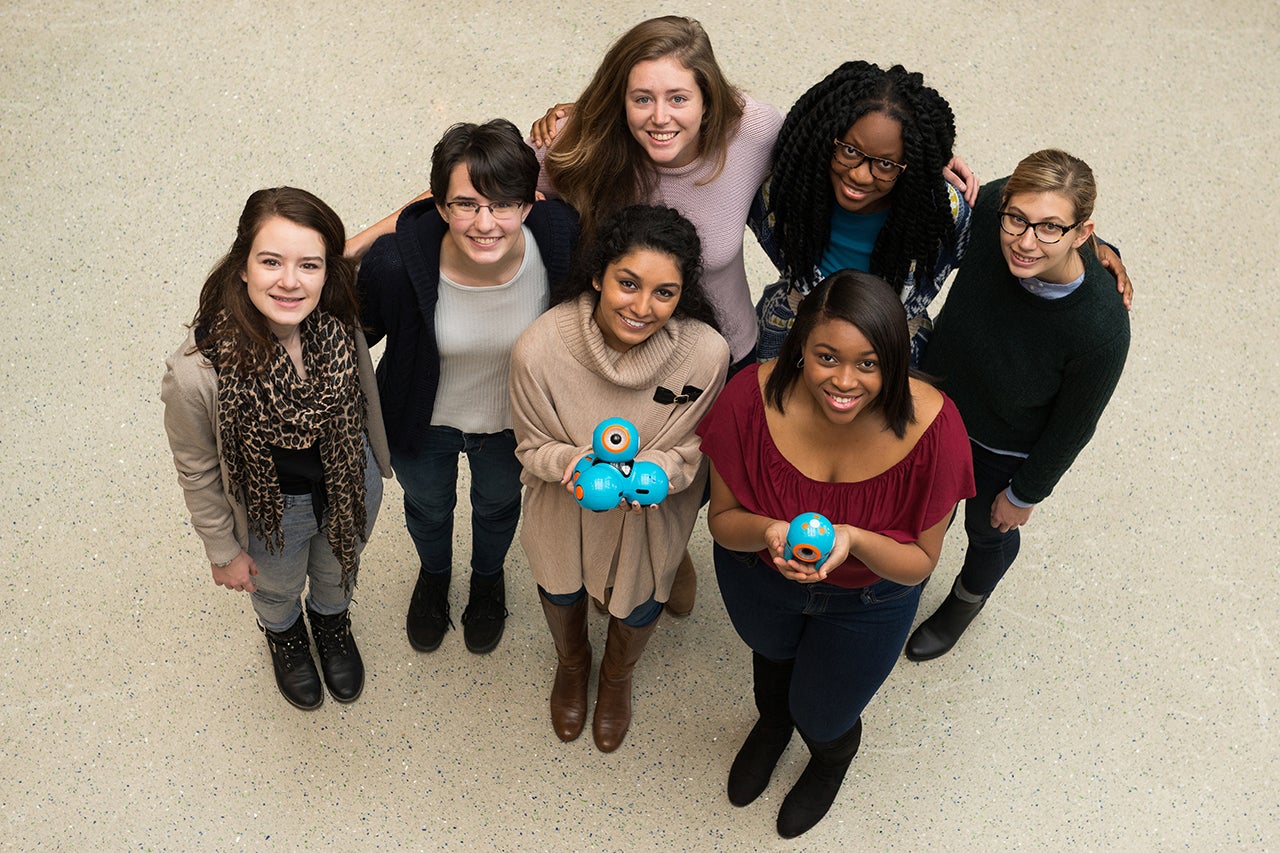In a landscape filled with computers and digital devices, one College of Charleston group is doing its part to make sure students of all ages and backgrounds feel empowered to participate in an increasingly tech savvy world.
With an eye toward diversifying the field of computer science, leaders in the student organization Women in Computing (WiC) along with CofC computer science students are reaching out to local middle school students thanks to a $3,155 grant from Google igniteCS, an initiative that provides funds and resources to college students to create mentorship programs in their communities.
WiC President Elaina Cole, a junior computer science major, says she and her fellow students created a curriculum for a program aimed at middle schoolers that would introduce them to coding and basic computer science concepts in a way that is fun and engaging.
“We approached the concept from the perspective of what did we want to know when we were younger, growing up,” Cole says.

Funds from the Google igniteCS grant will help purchase Wonder Workshop robots for the after school program at Zucker Middle School.
The Google igniteCS funds will go toward the purchase of computing equipment, codable robots and iPads for an after school program the CofC group will run in the spring at Jerry Zucker Middle School of Science in North Charleston.
“The entire goal really is to show them how to have that initial spark and interest in computer science,” Cole says. “We want to give them the confidence that they can do this, it’s not scary and that these devices and skills are applicable to their everyday lives.”
That’s exactly what WiC aims to do for the CofC campus, too. And as a newly chartered member of the Association for Computing Machinery – Women (ACM-W), the student-led group will now have the ability to engage a more diverse range of speakers who are doing more diverse research. As a member of the ACM-W, WiC can seek funds from the national organization to fly in speakers from around the country to talk about a specific technical subject or career-oriented topic.
“These resources give us the opportunity to pull in speakers from wider geographic and technical areas,” Cole says. “With a wider range of speakers, hopefully the topics will appeal to more people’s interests and we can garner more attention and attendance.”
Professor RoxAnn Stalvey, who is the faculty advisor for WiC, says the goal of the group is to support, celebrate and advocate for women in computing fields. Despite its name, the organization is open to women and men with the purpose of creating diversity within the field.
In the three years since the group officially launched, Stalvey said the computer science department has grown from around 12 percent female to 31 percent female, an increase she says could be in part due to the efforts of WiC and students like Cole.
“It’s advantageous for companies to be diverse – gender diverse as well as ethnically diverse,” Stalvey says. “We’re trying to help encourage that diversity within our own walls with the hopes of adding more women to the workforce.”




